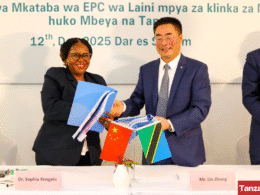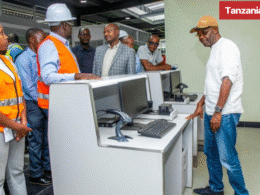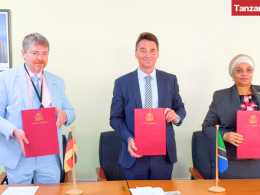In February 2020, REvivED, a water project funded by the EU, was in Tanzania to complete the installation of two of the latest models of small solar-powered desalination systems for rural areas.
A pilot plant was installed at a saline well in the Maasai village of Ndedo in the Arusha region in northern Tanzania and supplies the population with 2,000 liters of drinking water per day.
The new plants are complete systems in which the water is cleaned of dirt particles, bacteria, and viruses in a preliminary stage and treated with self-generated chlorine in a post-treatment stage for sterile storage in a water tank.
The core of the system is based on the membrane process of electrodialysis. In contrast to conventional desalination technologies (thermal or reverse osmosis), electrodialysis is particularly low-maintenance and is well suited for solar power supply due to its low energy consumption.
Thus, a completely self-sufficient system could be developed, which does not require any additional infrastructure or power supply.
In addition, REvivED water desalination units are remotely monitored and troubleshooting and system adjustments can be made from the Phaesun offices in Germany.
While the REvivED water project will conclude in April 2020, these installations show the potential of desalination units such as these to be a solution for those in need of better access to safe water.











